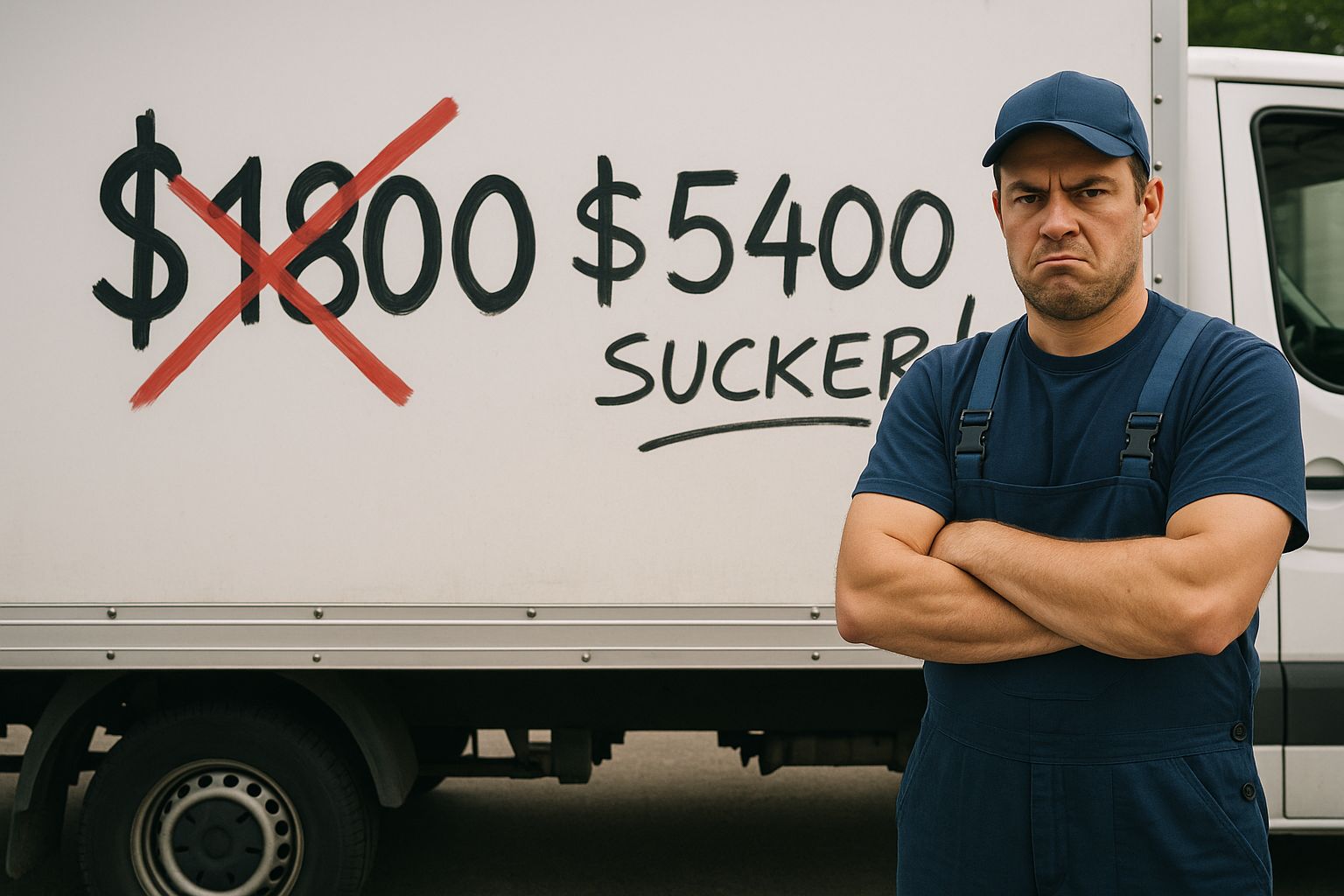Every agency owner eventually faces a moment where doing what’s right means losing money. I was reminded of that lesson recently after dealing with a moving company that completely violated my trust.
They quoted me $1,800 to move my stuff. Two days before the move, smooth-talking Tyler from “quality control” called to review our move details. It turns out that the first salesperson underestimated the space we'd need for the list of stuff we provided, and Tyler bumped the price to $5,400. Same job. Same day. Same truck. When I pointed out that the price had tripled due to their error, Tyler blamed the “computer system” and company policy.

But the truth was obvious: they lowballed the estimate to get me in the door, then tried to squeeze me when I was most vulnerable.
That’s not salesmanship.
That’s exploitation.
That’s price gouging.
That’s disgusting.
That’s bad business.
When I called him out personally, he tried to hide behind company policy. But I told him the truth: “The words are coming out of your mouth. You work there. You decide to work there. You’re the one doing the dirty work.”
If you’re not already subscibed to this newsletter, you can sign up for free at businessofagency.com.
As the customer, I was outraged. We canceled our move with them, rented a box truck and a couple of College Hunks and we’ll just fine.
Trust is fragile. Whether you’re a mover, a photographer, or running a marketing agency, once you act unethically, your brand is finished.
A friend recently texted me about a client who wanted to cancel after booking a session. She was tempted to keep the deposit, but we talked about what was right, not just what was legal or allowed by the contract. I told her: Do the right thing, the fair thing, even if it costs you lost revenue.
I haven’t always had that outlook on situations like hers. In the past, I’ve weaseled my way into keeping the money. But it was never worth it. It’s a short-term gain for a long-term loss. A hack, and a hack never gets you where you want to go.
Clients talk. When they feel mistreated, even within the letter of the agreement, they tell everyone who will listen. That reputational damage spreads faster than any refund ever could. I learned that being ethical doesn’t just protect your conscience: it protects your brand.
That’s why now, when a situation like that comes up, I ask myself one question: “What would make this client walk away feeling respected?” If that means giving back money or redoing work, I do it. It’s not weakness. It’s strategic, and the right thing to do. The companies that win in the long-term are the ones that treat people with fairness and humility, even when it’s inconvenient.
Build your brand on integrity. People remember how you made them feel. When you treat people right, they’ll remember it. That’s the kind of brand that lasts.
In agency life, that means never overselling results, never hiding behind vague promises, and always doing what’s best for the client. At the end of the day, your brand isn’t your logo or your copy.
It’s how you behave when money’s on the line.
At The Business of Agency, we teach agency owners how to run profitable businesses built on trust, ethics, and long-term client relationships. Subscribe to my newsletter or visit businessofagency.com to learn more.
I hope that helps.
~ Erik